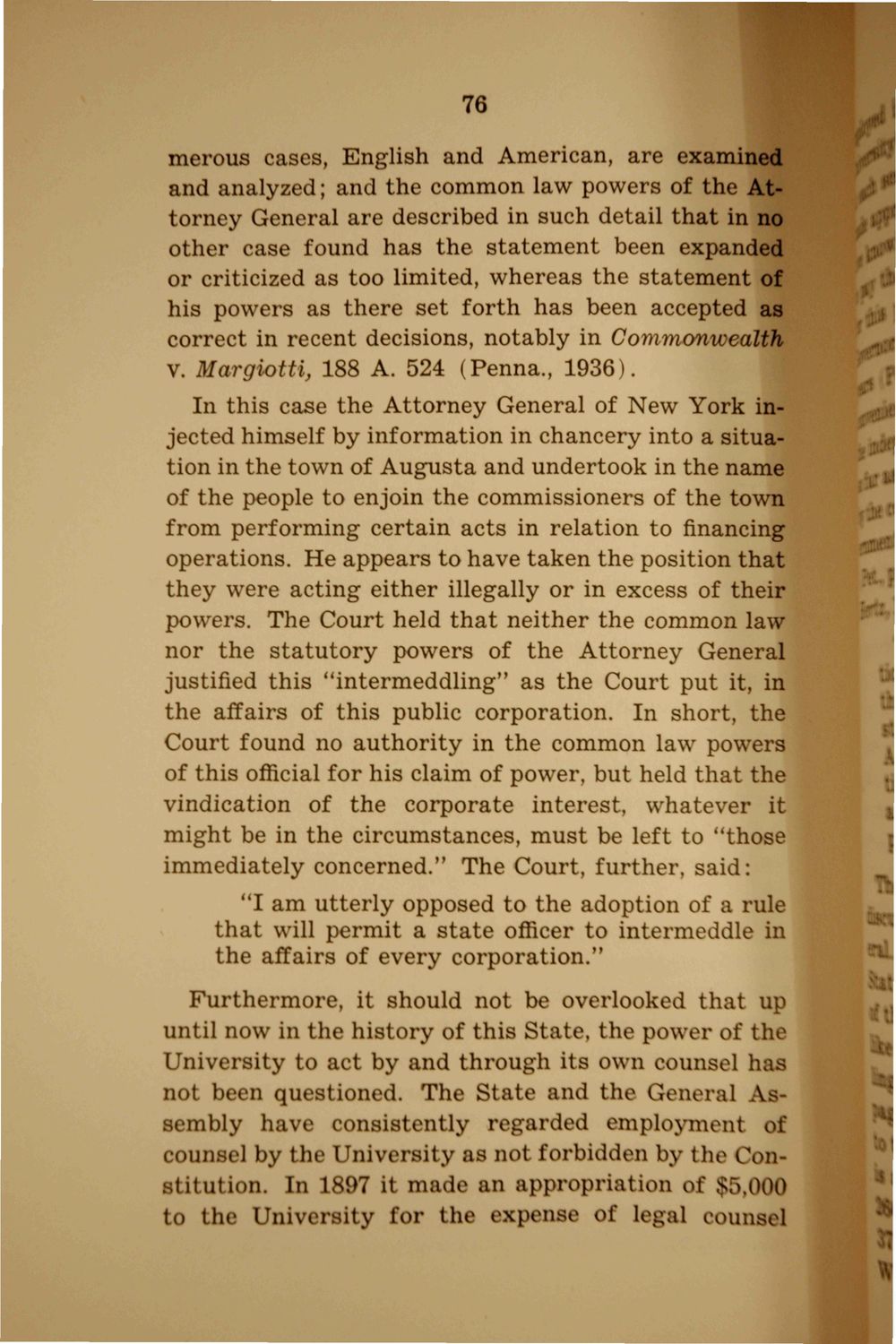| |
| |
Caption: Booklet - UI Charter of Freedom (1942)
This is a reduced-resolution page image for fast online browsing.

EXTRACTED TEXT FROM PAGE:
76 merous cases, English and American, are examined and analyzed; and the common law powers of the Attorney General are described in such detail that in no other case found has the statement been expanded or criticized as too limited, whereas the statement of his powers as there set forth has been accepted as correct in recent decisions, notably in Commonwealth v. Margiotti, 188 A. 524 (Penna., 1936). In this case the Attorney General of New York injected himself by information in chancery into a situaAugusta of the people to enjoin the commissioners of the town from performing certain acts in relation to financing operations. He appears to have taken the position that they were acting either illegally or in excess of their powers. The Court held t h a t neither the common law nor the statutory powers of the Attorney General justified this "intermeddling" as the Court put it, in the affairs of this public corporation. In short, the Court found no authority in the common law powers of this official for his claim of power, but held that the vindication of the corporate interest, whatever it might be in the circumstances, must be left to "those immediately concerned." The Court, further, said: "I am utterly opposed to the adoption of a rule that will permit a state officer to intermeddle in the affairs of every corporation." Furthermore, it should not be overlooked that U] until now in the history of this State, the power of the University to act by and through its own counsel has not been questioned. The State and the General Assembly have consistently regarded employment of counsel by the University as not forbidden by the Constitution. In 1897 it made an appropriation of $5,000 to the University for the expense of legal counsel
| |